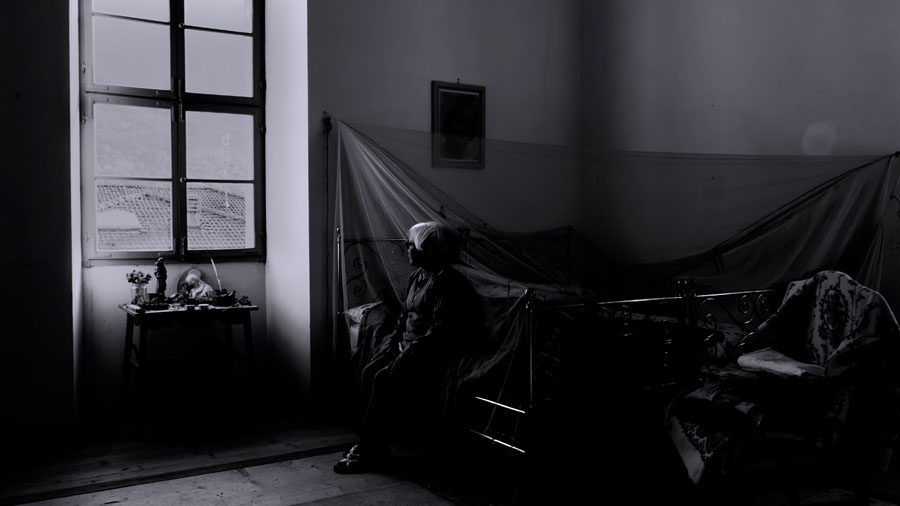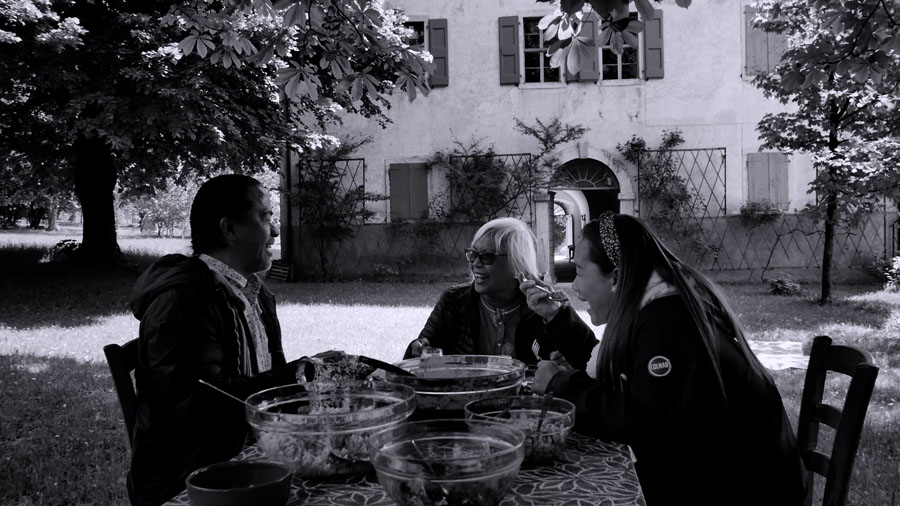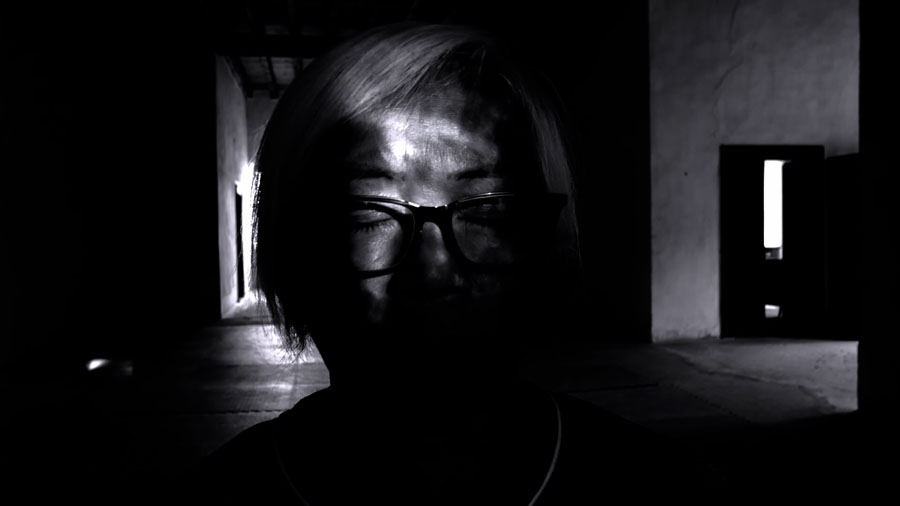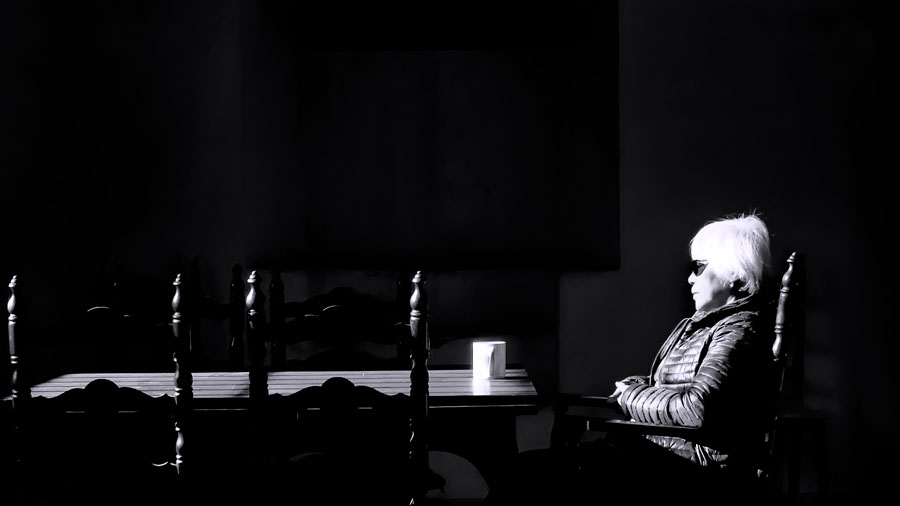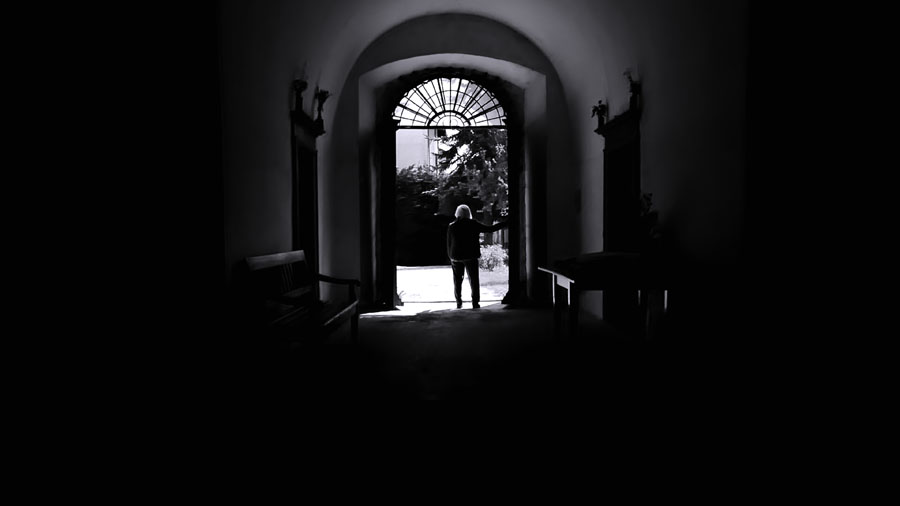COME LA NOTTE
(Where the Night Stands Still)
Synopsis
After years of separation, three Filipino siblings, all domestic workers in Italy, reunite in the villa inherited from their eldest sister, Lilia. As night falls, their long-awaited reunion brings back old memories and unspoken resentments. The air is heavy with the weight of what has remained unsaid over time, as the siblings navigate the delicate distance that has grown between them. In the silence of the villa, they wrestle with an indescribable pain, while their shared history unfolds in fragments, revealing silent yet profound traces of absence, nostalgia, and broken bonds.
A Film by Liryc Dela Cruz
Italy, 75 minutes, Black & White, 2025
Produced by Pelircula (IT), Il Mio Filippino Collective (IT)
A project by Il Mio Filippino Kolektib
Co-produced by Ozono (IT) Reckless Natarjan Pictures (PH)
Cast
- Tess Magallanes as Lilia
- Jenny Llanto Caringal as Rosa
- Benjamin Vasquez Barcellano Jr. as Manny
Crew
- Director: Liryc Dela Cruz
- Screenplay: Liryc Dela Cruz
- Story: Liryc Dela Cruz, Jenny Llanto Caringal, Tess Magallanes, Benjamin Barcellano Jr., Sheryl Aluan
- Director of Photography: Liryc Dela Cruz
- Editing: Liryc Dela Cruz
- Production Design: Liryc Dela Cruz
- Sound Design: Antonio Giannantonio
- Producer: Liryc Dela Cruz
- Co-Producers: Leonardo Birindelli, Gutierrez Mangansakan II, Moira Lang, Evelyn Vargas-Knaebel
- Produced by: Pelircula, Ozono, Il Mio Filippino Collective
- Co-Produced by: Reckless Natarajan Pictures
- Executive Producers: Benjamin Barcellano Jr., Jenny Llanto Caringal, Tess Magallanes, Saro Vallejo, Liryc Dela Cruz, Leonardo Birindelli
- Production Director: Benjamin Barcellano Jr.
- Direct Sound Recording: Saro Julian, Matilde Ramini
- Production Assistants: Jenny Llanto Caringal, Tess Magallanes, Giacomo AG
- Production Coordinators: Sheryl Palbacal-Aluan, Gian Luca Catalfamo
- Sound Editing: Lorenzo Amato
- Sound Contributions: Greg Farough, Hugo Sanchez, Gabriele Lepera
- Colorist: Edoardo Aleandri
- Editing Assistants: Giulia Papacci, Serena Paglino
- Post-Production Coordinators: Giulia Papacci, Serena Paglino
- Post-Production Studio: Ozono
- With the support of: Cinecittà, Spazio 500, Amsterdam Film Meeting, Pescheria

